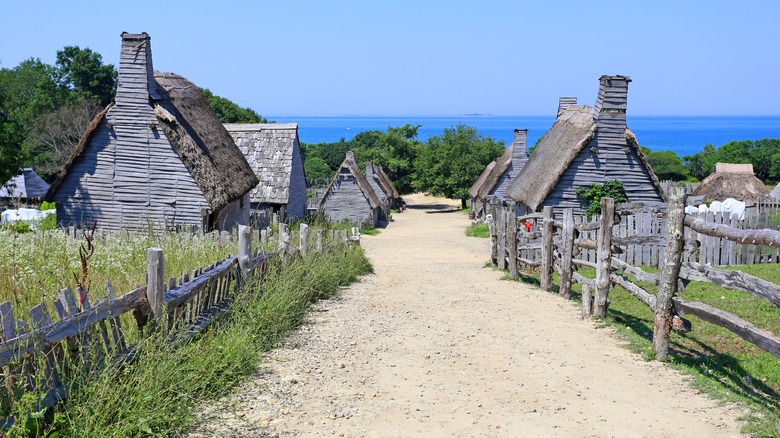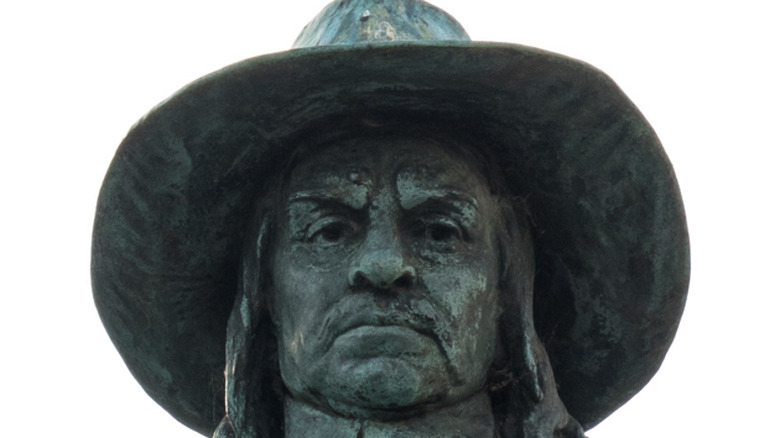The Time That Christmas Was Banned In Massachusetts
Some of the roots of Christmas revelry predate this event by centuries. Part of that has to do with timing. Since at least the 5th century B.C., if not earlier, the holiday season of Saturnalia was celebrated in Rome (via World History Encyclopedia). In a celebration not unlike Mardi Gras, normal social conventions were loosened during that holiday, which took place during the winter solstice in late December. When Christianity became widespread and eventually legalized in Rome, December 25 was eventually chosen as the day on which to celebrate the birth of their new messiah, replacing the pagan Saturnalia festival.
This is likely given its pre-existing status as a popular holiday time-frame, as Saturnalia was one of several annual events that took place from December to January (via History Today). While the winter holiday season in Rome and the kingdoms that descended from it had been changed in meaning, the activities that revelers partook in scarcely changed. Even by the 17th century Christmas had a reputation as a time for socially unacceptable behavior, and after England's Puritans took power in 1644 they decided to act on their hatred of the holiday.
Cromwell's government targeted Christmas
According to History, the Puritans detested Christmas for what they saw as its pagan-like, nominal celebration of their Lord. The very celebration of Christ's birth, the date of which is not specified in the Bible, was considered by them to be little more than an excuse to engage in irreligious activities. Christmas had become a time of excess — parties, alcohol, and "extravagance, waste and immorality," says History Answers U.K. The celebrations were also considered too closely associated with Catholicism. A ban on public festivities remained in place until the monarchy was restored under Charles II in 1660 (via BBC).
However, while he reversed the law as it applied to England, a strong Puritan holdout remained in the form of the colony of Massachusetts. Here the ban, under which would-be party-goers were fined five shillings at best and at worst assaulted, persisted until 1681. For context, this was 37 years after its English progenitor was passed and more than 20 after it was ended. Charles II, having intentionally lifted the ban within his immediate domain, leveraged Massachusetts to follow suit by threatening to remove their royal charter. While this worked and celebrations became officially legal, the Massachusetts colonial and later state government continued to treat it as a normal weekday until the late 19th century (via Mental Floss).

